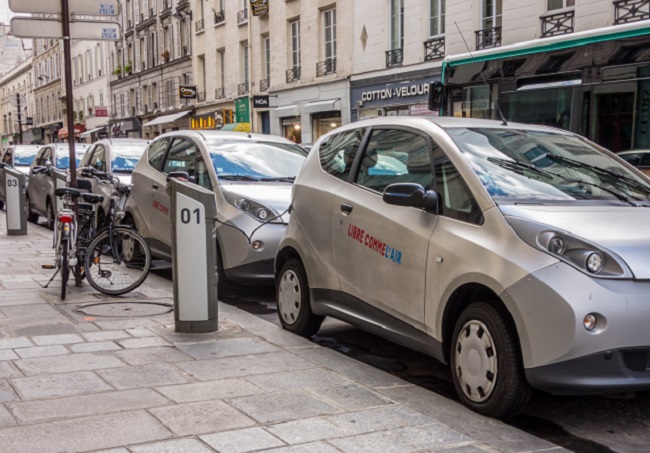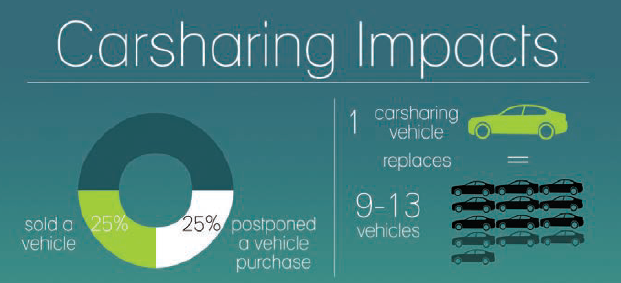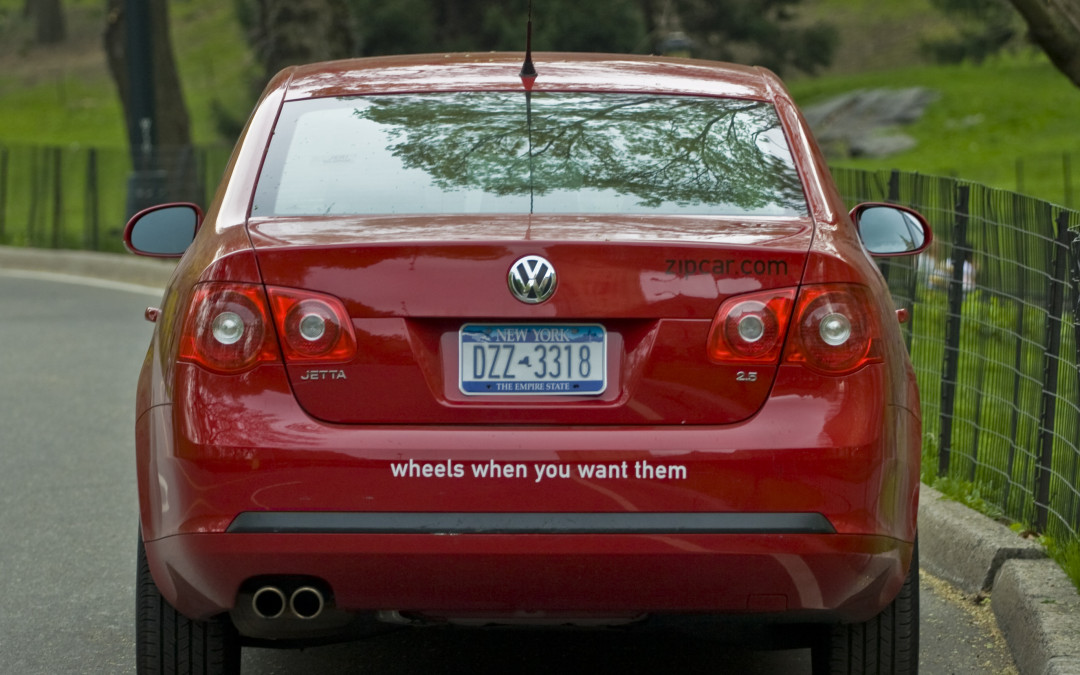
by Innovative Mobility Research | Jul 10, 2015 |
New research into how people’s habits change shows that everyone benefits from car-sharing schemes − apart from car manufacturers who suffer a loss of sales. Car sharing is a growing social trend across Europe and North America and is expected to increase by 36% annually to 2020, especially in compact cities where people do not need a car every day but want to use one for family trips and holidays. Even in North America, where cities are more sprawling, research shows there were 23 car-share operators in the US in 2014. They had 1.3 million members, sharing 19,115 cars. In a survey conducted for the Transportation Sustainability Research Centre at the University of California Berkeley, investigations into the habits of 9,500 car-sharers showed that a quarter of the participants had sold their cars, and another quarter had postponed purchase of a new one. The researchers concluded that one shared car replaced between nine and 13 privately-owned cars. For each family, this meant a 34%-41% reduction in greenhouse gas emissions. To read more, click...
by Innovative Mobility Research | Jul 8, 2015 |
Authors: Susan Shaheen and Adam Cohen Date: July 8, 2015 Description: Carsharing market overview, analysis, and trends. View...

by Innovative Mobility Research | Jun 22, 2015 |
By Agence France-Presse (AFP) In addition to concerns about greenhouse gases and pollution, there are many reasons why a growing number of urban dwellers are opting not to buy their own car: a chronic shortage of parking space, soaring insurance and upkeep costs, and high fuel prices. Many prefer to use the well developed and efficient public transport systems found in Germany and other countries. “In towns and cities, young people don’t necessarily want to have a car,” said Stefan Bratzel, director of the Center for Automotive Management (CAM) in Bergisch-Gladbach. They still want the convenience of a car, without the financial burden of owning one. Yet they do not want to have to use traditional car-rental firms every time they decide to go for a spontaneous jaunt into the countryside. Further afield, there are around 700,000 users in Japan, which started car-sharing schemes in 2007, and 1.3 million in the United States, according to recent data published by the University of California in Berkeley. Gunnar Nehrke of BCS said that Germany stands out because of the sheer size and extent of its network. “In many countries, there is car-sharing in the capital, or two or three of the biggest cities. Here, car-sharing is available in 490 towns and municipalities,” he told AFP. BCS predicts the number of users in Germany will rise to 2 million in the next five years. To read more, click...

by Innovative Mobility Research | Jun 17, 2015 |
By Makenzi Rasey Confession: When I started sharing rides as a means to get around, it wasn’t entirely for a greater good, or for any particularly noble reasons. I wanted to get where I needed to go as conveniently, quickly and inexpensively as possible. As ridesharing turned into peer to peer car-sharing -through services like GetAround andRelayRides– I still saw such travel as a means for efficient and affordable transportation. It didn’t immediately occur to me that what I was doing had broad and measureable environmental benefits. How little I knew! From Susan Shaheen, director of Innovative Mobility Research at UC-Berkeley’s Transportation Sustainability Research Center, I learned that “One car-sharing vehicle can replace 9 to 13 vehicles among car-sharing members because their vehicles were sold or they postponed purchasing vehicles,”. Dr. Shaheen’s research also found that carsharing “results in notable reductions in vehicle miles traveled (VMT) (27% to 43%) and in greenhouse gas (GHG) emissions (an average reduction of 34% to 41% and an average decrease of 0.58 to 0.84 metric tons/household).” That’s not all. To read full article, click...

by mattchristensen00 | Jun 16, 2015 |
By Greg Gardner Maybe car sharing won’t threaten the auto industry after all. Despite forecasts from futurists that millennials aren’t that interested in owning cars and trucks, new vehicle sales are running at levels not seen since the housing bubble of a decade ago. At the same time 1.3 million Americans belonged to some type of car-sharing network at the end of 2014, a 34% increase from 2013, according to the University of California-Berkeley’s Transportation Sustainability Research Center. In fact, a newish segment of car-share industry is also expanding, renting out your personal vehicle to strangers in much the same way Airbnb.com rents out your residence to travelers, if you’re out of town or on your own vacation. The San Francisco-based vehicle-share program, which launched in 2009, is called Getaround and has expanded this year to Washington DC, Portland, Ore., and Chicago. The simultaneous upswing for auto sales and car -sharing can be partially explained by rethinking some faulty assumptions. To read the full article, click...





